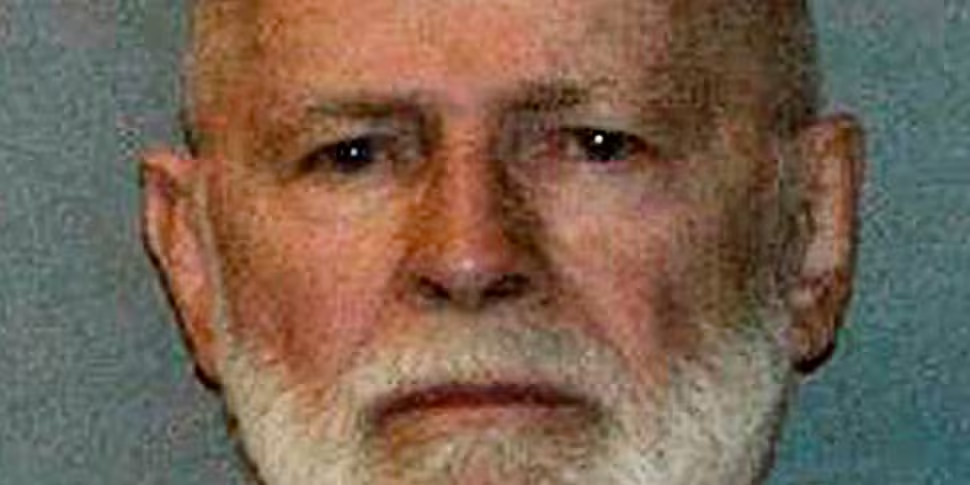The trial, which Andrew Cohen has called "the trial not just of this century but of the last one, too", is the culmination of the public fascination with the notorious Boston-based mobster.
Numerous books have been written about Bulger and his various activities, including memoirs by former partners like Kevin Weeks.
Jack Nicholson’s character in The Departed is said to be modelled on Bulger, and there are several proposals for full Hollywood biopics (including one planned by Boston native Ben Affleck).
How exactly did Bulger achieve such infamy?
James Joseph “Whitey” Bulger Jr. was born in Boston in September 1929, his father (James Joseph Sr.) having married first-generation Irish-American Jane Veronica McCarthy after moving to Boston.
Whitey’s life of crime began early, and was embroiled in street crime by his very early teens. He was charged with larceny at the age of fourteen, and would spend time in a juvenile correction facility before serving a stint in the US Air Force.
Despite being honourably discharged in 1952, Bulger became involved with criminal activity again after returning to his home state. In 1956, he was charged with armed robbery and hijacking, and would ultimately spend nine years in federal prison.
Bizarrely, his stretch in prison reportedly saw him involved in the MK-ULTRA project - CIA-backed experiments with LCD and other drugs to try and develop ‘mind-control’ techniques in the participants.
Married to the mob
Released in 1965, Whitey soon became involved in loansharking and bookmaking, which forged his relationship with the Killeen gang - the dominant Irish mobsters in South Boston. The 1970s saw the outbreak of the Killeen-Mullen feud between two rival mob families.
It is during this time that Bulger is alleged to have carried out his first murders.

After the murder of leader Donald Killeen - some reports suggesting the hit was carried out by Bulger himself, attempting to defect from the losing faction - a truce was agreed between the warring gangs.
Talking about Bulger’s participation years later, Patrick Nee of the Mullen gang observed that “nobody at that table could ever have possibly imagined how this treacherous **** would treat his partners.”
The newly merged gangs became an integral part of the Winter Hill Gang - the dominant Boston organised crime group that remain active today. Whitey Bulger led a takeover of the gang in 1978-79 following the arrest of previous leader Howie Winter, with Bulger willing to double-cross, betray or even kill to rise up the ranks.
FBI informant
One of the more formative events in Bulger’s life of crime was partnering with Stephen Flemmi, who had been an FBI informant from the mid-1960s.
Bulger was soon persuaded to begin informing as well, possibly under the threat of more prison time. His status as informant ironically helped him avoid prison as other prominent members of his gang were sentenced in the late 70s - a major factor in allowing Bulger to seize control of Winter Hill.
Bulger and Flemmi became strongly linked with handler John Connolly, who fed the pair with inside information in exchange for their informing (“s**t for gold”, according to Flemmi). It has been alleged that Connolly effectively became a member of the Winter Hill Gang himself, becoming involved with channeling bribes as well as feeding information to the mobsters.
Connolly and others also helped Bulger and his crew identify other informants and threats, allowing them to strengthen their control of the city.
Dominance and downfall
The 1980s saw Bulger and his gang become the dominant force in the Boston gangland, involved with weapon trafficking, extortion, gambling rings and protection rackets among other activities. According to the gang members themselves, their criminality was supported by influential cooperators in both the FBI and Boston police.
In 1991, the Winter Hill Gang managed to procure a winning lottery ticket worth over €10 million, with Bulger and other prominent figures sharing the winnings.
Bulger has also been directly accused of being personally responsible for several murders during the 80s, including those of drug dealers Louis Litif and Edward Brian Halloran. Bulger and his partners maintain that rather than being directly involved in the drug trade themselves, they extorted money from the actual traffickers.
Bulger, who is reported to have had financial reserves and passports hidden in several international locations including Dublin, was forced to leave Boston for good in December 1994 due to an impending arrest following an investigation into his gang’s gambling activities.
Although he spent time travelling the world during the late 1990s, he was ultimately found hiding in ‘plain sight’ in California. He was arrested in June 2011 following a major global manhunt and almost two decade long placement on the FBI 'Most Wanted' list.
With his trial ongoing, the infamous Whitey Bulger is making headlines again, nearly two decades after his reign over Boston.
Many expect Bulger to use the opportunity to confront old grudges and grievances.
Kevin Cullen is a Boston Globe journalist and Bulger biographer who has been placed on Bulger’s personal witness list so he cannot provide negative testimony for the prosecution. Cullen says “I believe that this trial, for Whitey, is not about getting acquitted, it’s about getting even.”









